Culture in sculpture: Rising artist Niyamat Mehta is bridging the gap between the past and present
2022 Venice Biennale’s youngest artist Niyamat Mehta’s work is influenced by her exposure to cultures across London, Florence, Rome, Delhi, and more.
The heritage structure of Bikaner House in plush central Delhi served as a fitting venue for 23-year-old Niyamat Mehta’s first solo exhibit, Meraki. A Greek word, Meraki translates to doing something with your soul, and surrendering a part of yourself in your craft. The show was all that and more, with Mehta inviting viewers to contemplate their own journeys through the 27 bronze and hydro resin sculptures on display.
YS Life attended the exhibition and caught up with Mehta to delve deep into her inclination towards art, the influence of various cultures on her work, and more.
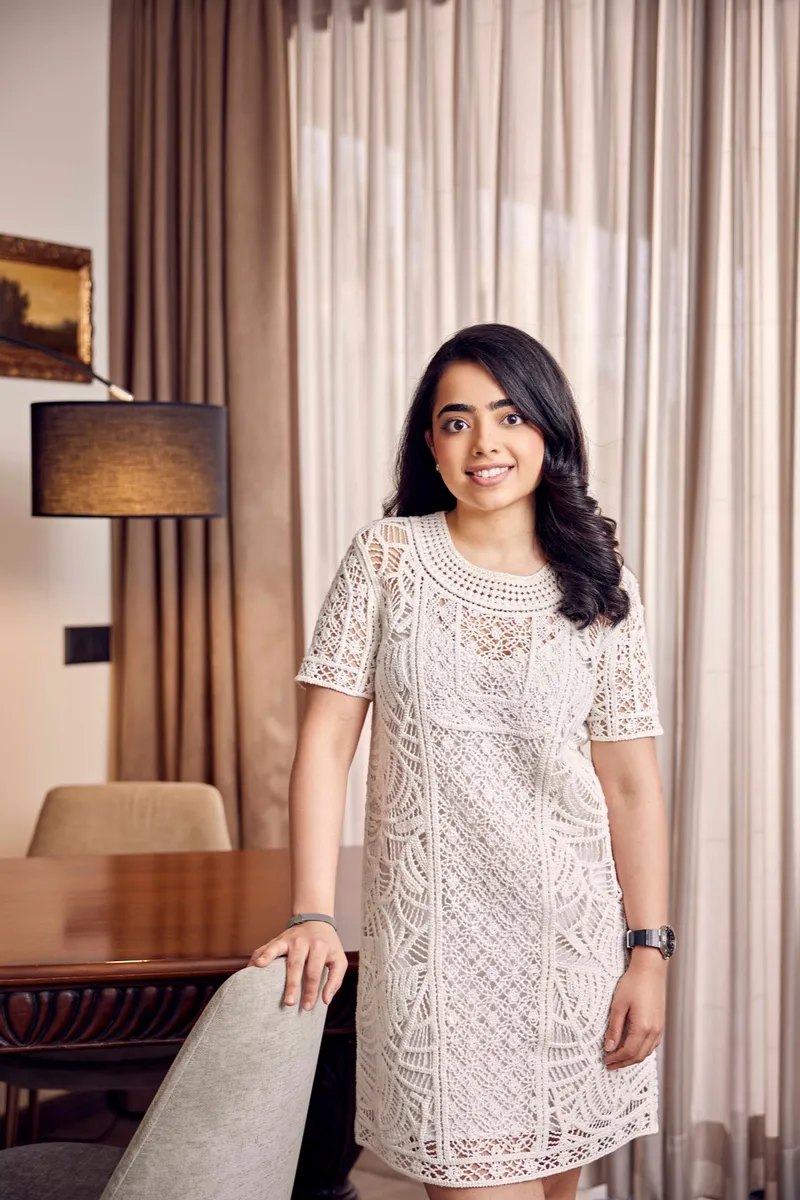
The inspiration and the process
Each sculpture on display at Meraki was fascinating. Works like Atman was inspired by the Hindu mythological hero Uchchaihshravas (the horse of lord Indra), and the smoky tendrils of the Dali exhibit reflected Mehta’s meticulous approach to creating sculptures that are classic yet contemporary.
Mehta says she is heavily inspired by the artworks of masters like Salvador Dalí, Leonora Carrington, Man Ray, Leonardo da Vinci, and MF Husain.
When asked about the process, Mehta explains that a small sculpture takes about a month or so to make.
Explaining the process, she says it begins with clay-sculpting that can happen in a studio. Next comes mould-making that can also be done in the studio, and takes about two to three days. Thereafter, casting in bronze, resin or plaster takes place at a foundry and typically happens in a week-and-a-half.
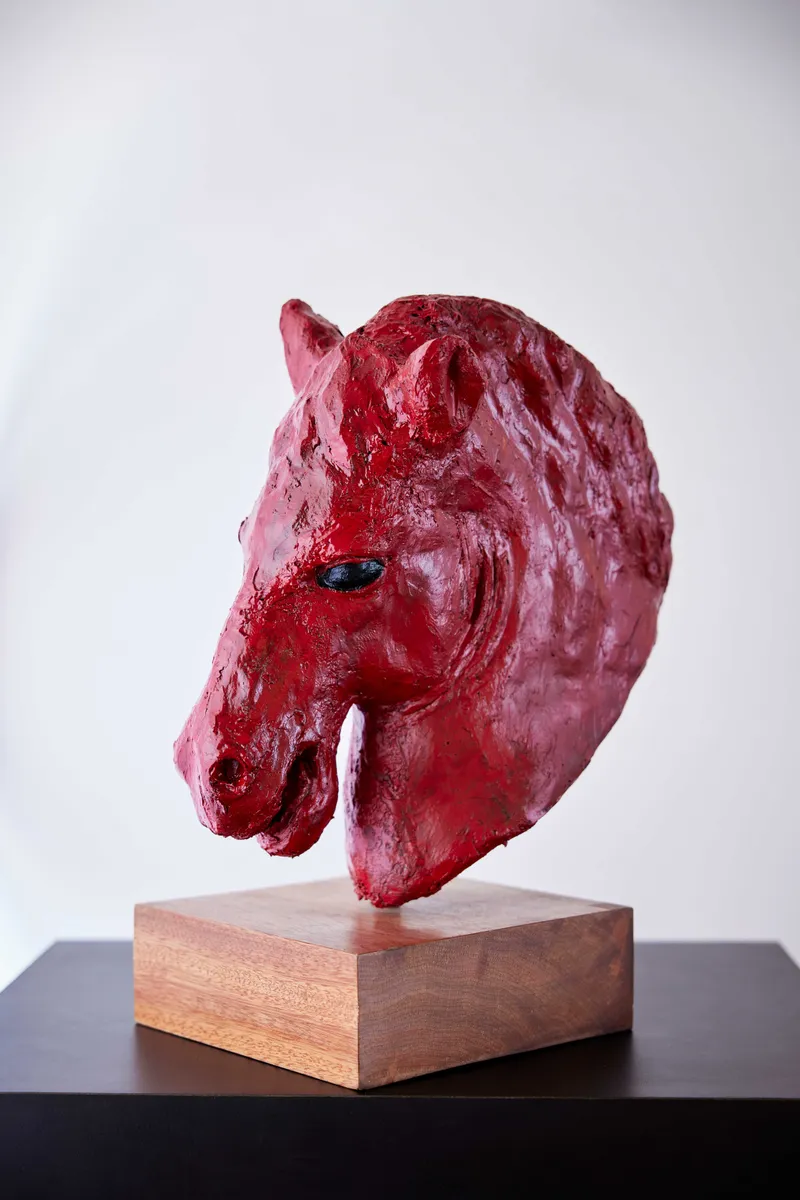
The resin sculpture titled 'Atman' channels the mythical 'Uchchaihshravas', which emerged during the cosmic churning of the ocean (Samudra Manthan) by the gods and demons
“After casting, there is the patternation process, a stage where you can see the colour. This takes another two to three days,” Mehta explains.
One of the most striking sculptures at Meraki, titled Mr Sinatra, took eight weeks to sculpt. Mehta chose not to cast it in bronze to retain its funky aesthetic. The sculpture is draped in a red jacket, making him look like someone who has just stepped out of an old-style British pub.
Another piece, Nicole, is centred on the concept of individualism, epitomised by influences like the art of Eugene Delacroix, music of Beethoven and in literature by Lord Byron.
“The work is also represented in yellow that is associated with the Manipura chakra, the third-energy centre, representing personal power, intellect, and self-awareness. In this context, the yellow hue becomes a gateway to heightened consciousness, encouraging viewers to delve into the depths of self-awareness,” says Mehta.
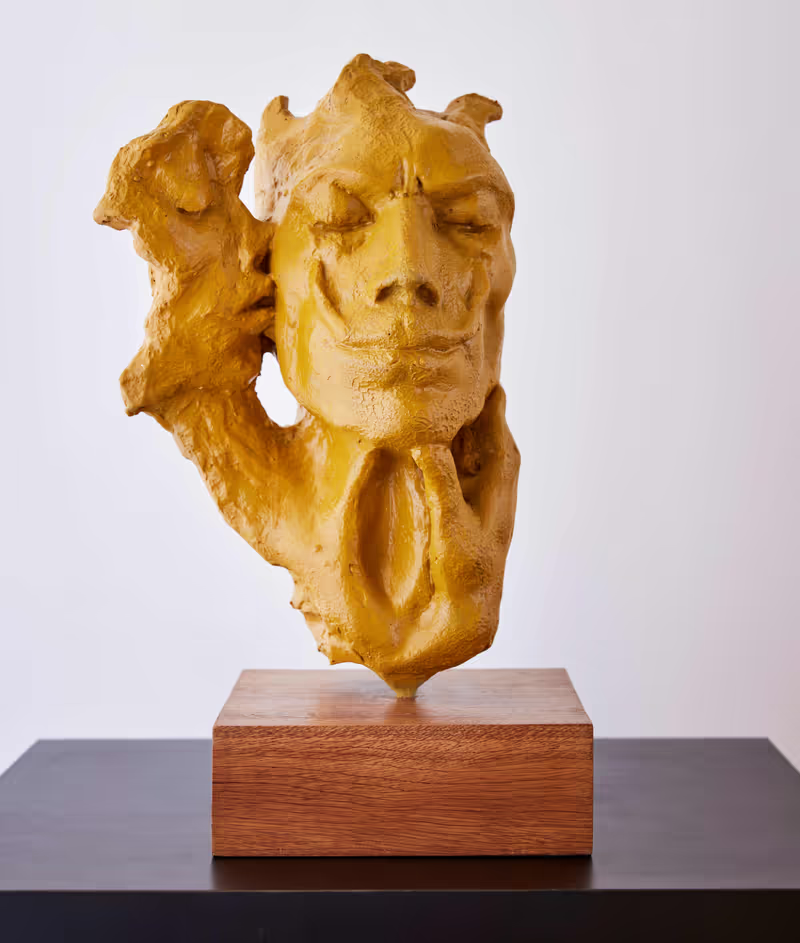
The juxtaposition of the complete visage and the enigmatic half-face creates a compelling visual dialogue, paying homage to Salvador Dali
Interestingly, Mehta’s works illuminate her artistic journey influenced by her experiences across London, Florence, Rome, Delhi, and more. Famed sculptor Greenville Davey has hailed her as a ‘potential artistic power’ who could be a generational bridge of artistic cultures.
A showcase of diverse cultures
Mehta’s entry into the world of art isn’t new. She had earlier auctioned at the Cluster Collection show organised by Khushii, a pan-India charitable organisation in 2021, and Parallax Art Fair in London in 2021, and in 2018-19.
Mehta was also the youngest artist on display at the Pallazo Albrizzi in the 2022 Venice Biennale.
She recalls gravitating to the subject as early as 10 years of age, when she entered the Lawrence School Sanawar in Himachal Pradesh. It was here that she cultivated her interest further with the support of her teachers.
At 15, Mehta’s first set of sculptures explored life in the Antarctic Sea, marred by the effects of global warming. One of the pieces was a penguin wearing headphones–the inspiration was probably from the Apple Shuffle iPods that were popular at that time, says Mehta. There was also a Superman cape that the penguin adorned!
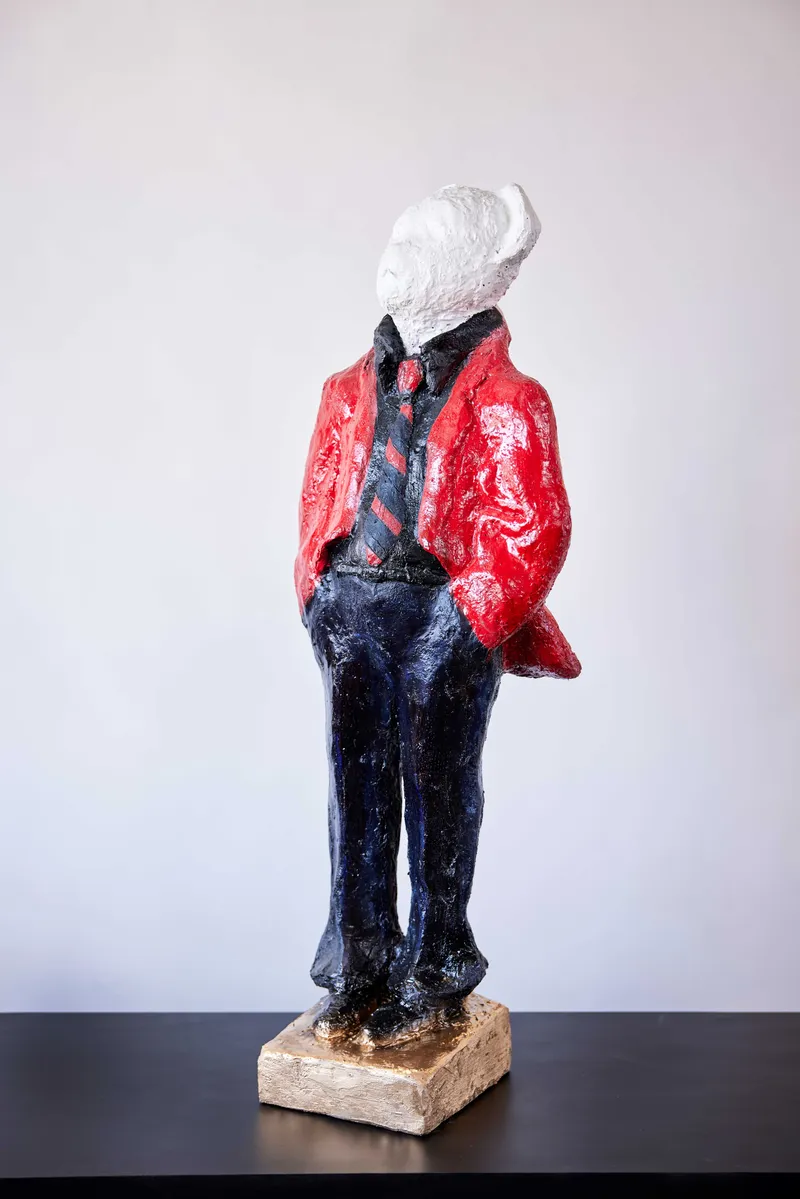
With impeccable style and charisma, Mr Sinatra epitomises the idea of cool
“Back then, I was quite enamoured by animated characters. Today, I perceive art differently and delve deep into history. If I make a surrealist sculpture or try to show romanticism, my inspiration varies. It’s all about going to the right museums, and being in Europe in my early years helped me,” she says.
At 16, Mehta was selected as a protégé to Master Sculptor Jason Arkles in Florence, Italy.
Expanding her technique under Arkles’ pedagogic methods that tend toward the narrative and allegorical, with an interest in myth, religion and social commentary, Mehta made a portrait from life using traditional methods of the old masters and went on to study human anatomy. Living in Florence, she soaked in the methods of Renaissance art that further helped her express herself in contemporary styles.
Later, Mehta enrolled in The Florence Academy of Art for a four-year course in figurative sculpture. She also taught at a local studio in Florence for a year and then moved to London, owing to her growing interest in the commercial world of art.
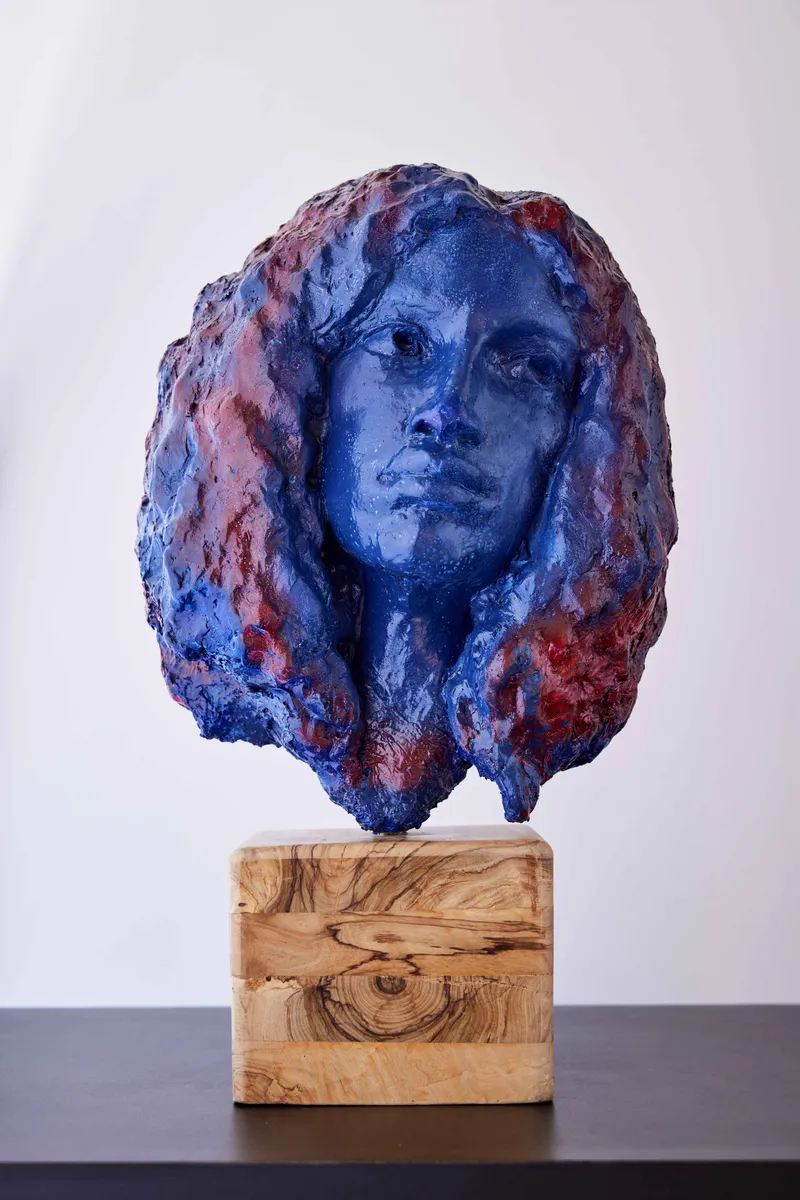
The sculpture titled 'Nicole' revolves around the concept of individualism, epitomised by influences like the art of Eugene Delacroix, the music of Beethoven, and in literature by Lord Byron
Inside Museum of Art and Photography: A haven where art meets technology
“In London, I studied Business of Art and History at Sotheby’s, while actively working at the London Fine Arts Studio that teaches classical and realist art,” she mentions.
But Mehta knew she wanted to return to India to impart all the knowledge she had amassed over the years.
A homecoming of sorts
Earlier this year, Mehta returned to Delhi.
Over the years, while interacting with upcoming Indian artists, she observed how there was hunger to learn, but lack of finances. Studying in Florence is an expensive affair, Mehta says, aware of her privileges.
Through her private studio, Atelier Della Firenze in Delhi’s Bhikaji Cama Place, she teaches and invites people to view her work. Anyone can sign up for her masterclasses based on their interest and willingness to learn.
“I believe there’s huge potential for sculpture to grow as an art in India. I want to be able to help others pursue their passion,” she concludes.
Edited by Megha Reddy







